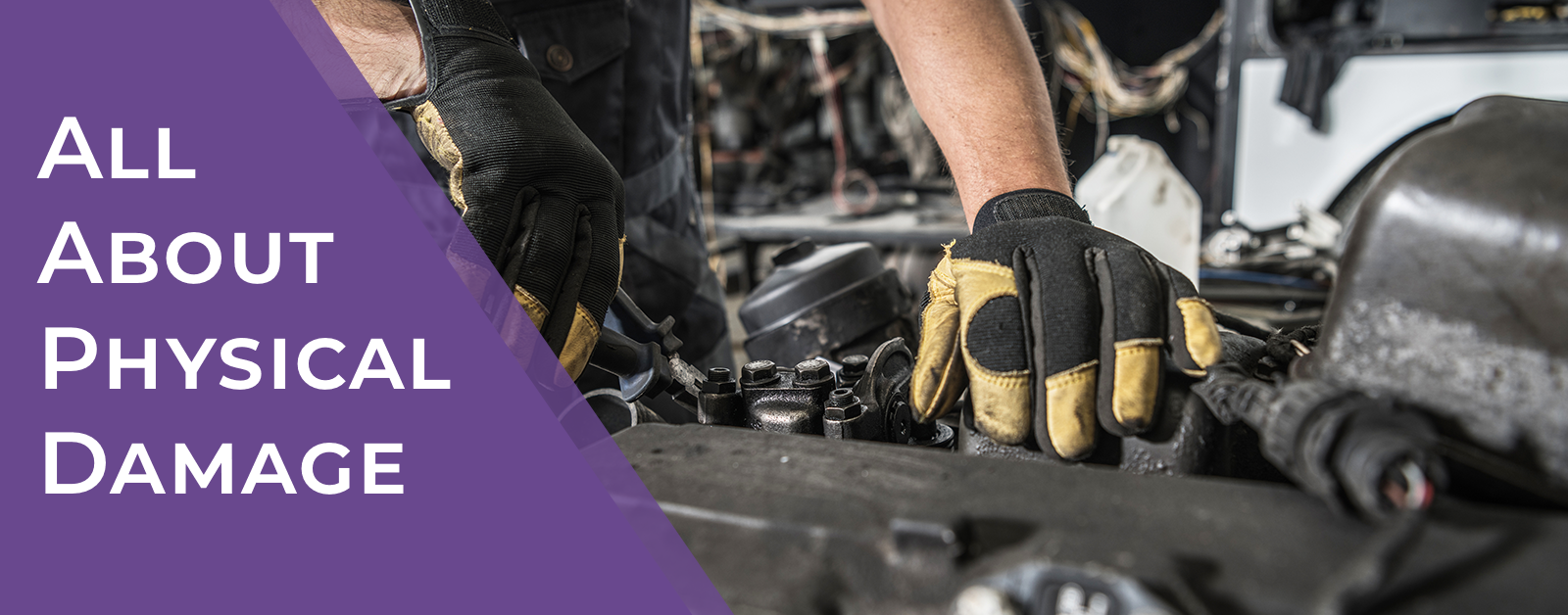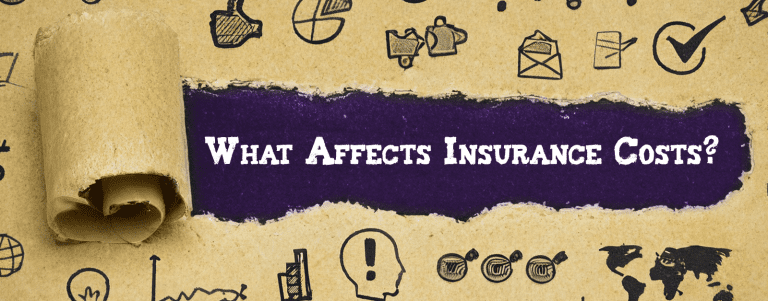All About Physical Damage
What is Physical Damage Insurance?
Physical Damage insurance reimburses any material loss to a listed vehicle on the policy. It is not an all-in-one coverage with your typical Auto Liability policy. Many people like to classify Physical Damage insurance as being full coverage. That is not true in commercial auto insurance due to exclusions found on most policies. Physical Damage policies include Comprehensive Coverage and Collision Coverage alternatively, known as Comp/Coll or APD. Understanding these two types of coverages are super important to understand the benefits of having a Physical Damage policy.
Comprehensive
Comprehensive coverage referred to casually as “other than collision coverage” covers events outside a driver’s control. This type of coverage also helps replace or repair your vehicle if the following happens:
- • Vehicle Colliding with Animals (i.e. striking a deer)
- • Natural Disasters
- • Fire
- • Riots & Vandalism
- • Theft
- • Broken Windshield
- • Fallen Objects
Collision
Collision coverage helps replace or repair your truck if you damage your vehicle in an accident with another vehicle or object. This insurance focuses on accidents within a driver’s control, whether the fault is of the insured or the other driver.
Examples of covered situations are:
- • A collision with another vehicle
- • Collision with objects (i.e. fence or tree)
- • Single car accidents involving a rollover or your truck falling over
Policy Exclusions
It’s also important to be aware of the exclusions within a policy when you ask ‘What is physical damage coverage?’, as the amount of coverage will vary. Exclusions are policy stipulations that eliminate coverage for particular risks. Insurers use exclusions to remove responsibility for risks they do not want to insure. Some of the most common exclusions we see are:
- • Wear and tear
- • Mechanical breakdown
- • Loss of personal or unattached items
- • Medical bills
- • Non-accident damages from bad repairs
- • Issues resulting in negligence or poor maintenance
Physical Damage insurance coverage depends on the value. Insurers determine value in two ways, actual cash value and stated amount. The stated amount of a vehicle is what you insure your unit as. You must list the stated amount for the total worth of the vehicle, not the amount you paid for it. When you have a stated value policy, you want to keep current records which will allow you to keep tabs on the worth of your unit in the present day. Doing this with help you avoid overpaying for premiums or receiving less money than the unit is worth if totaled.
Example Scenario
Say your Freightliner is valued at $15,000 on your policy. You later find out the truck was worth $20,000. The claim would pay per stated, $15,000 less the deductible. Actual Cash Value (ACV) is the second factor determining the payment. The ACV is what the market values your vehicle as at the time of the loss. If your truck is deemed totaled the insurer pays the actual cash value not exceeding the stated amount. One of the easiest ways to determine your stated amount is to check Price Digests or Truck paper. Dealerships, manufacturers, lending sources, and financial institutions can also assist you in calculating your stated amount. Be sure to ask about what your policy covers when you ask your agent ‘What is physical damage coverage?’.
Physical Damage's Deductible
Another key factor to Physical Damage is the deductible. A deductible is the amount of money an insured is responsible for paying toward a claim. Generally speaking, the larger the deductible, the less you pay in premiums for an insurance policy. Deductibles are either a specific dollar amount or a percentage of the total amount of insurance on a policy. If you would like a deductible or stated amount changed at any point in your policy, you can request a change by endorsement.
Here is a list of other Physical Damage enhancements you can add by endorsement that many people assume are included:
- • Full Glass Protection
- • Coverage for permanently attached equipment
- • Rental reimbursement
- • Downtime
- • Roadside Assistance
- • Gap Coverage
Marquee Insurance Group works on behalf of the insured when it comes to dealing with the insurance companies. If you’ve found yourself asking ‘What is physical damage coverage?’, please call us at (833) RING-MIG.





